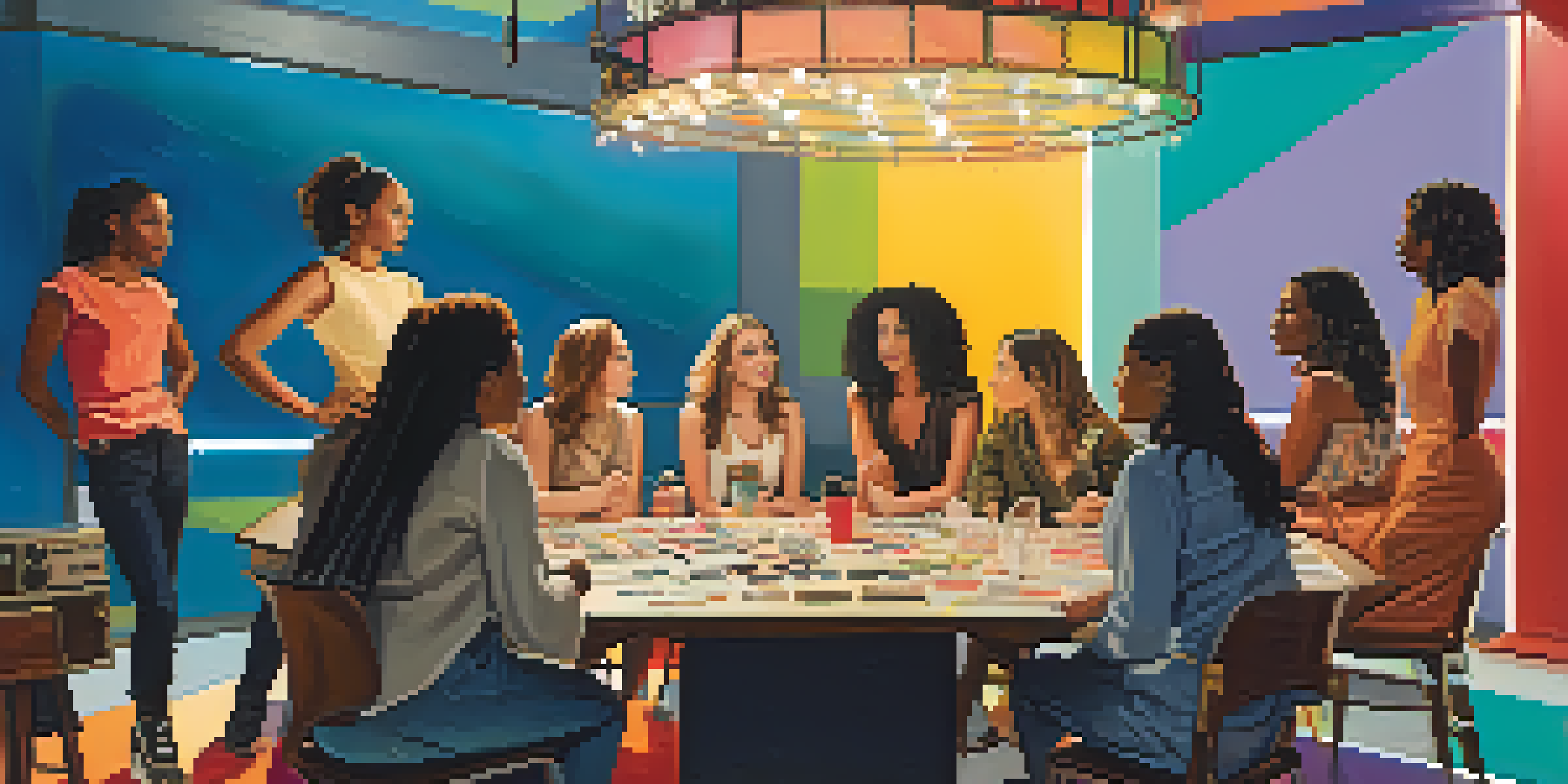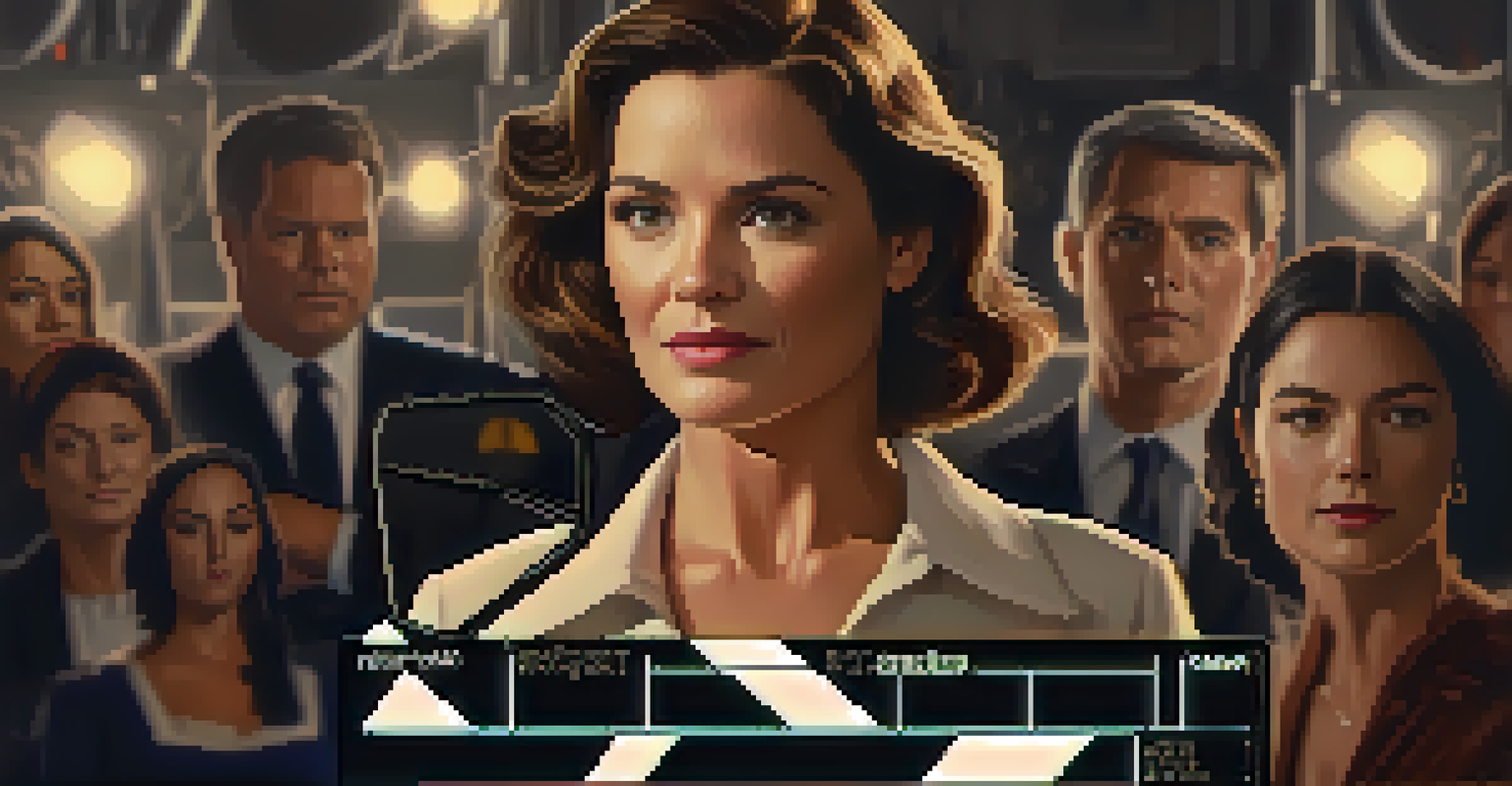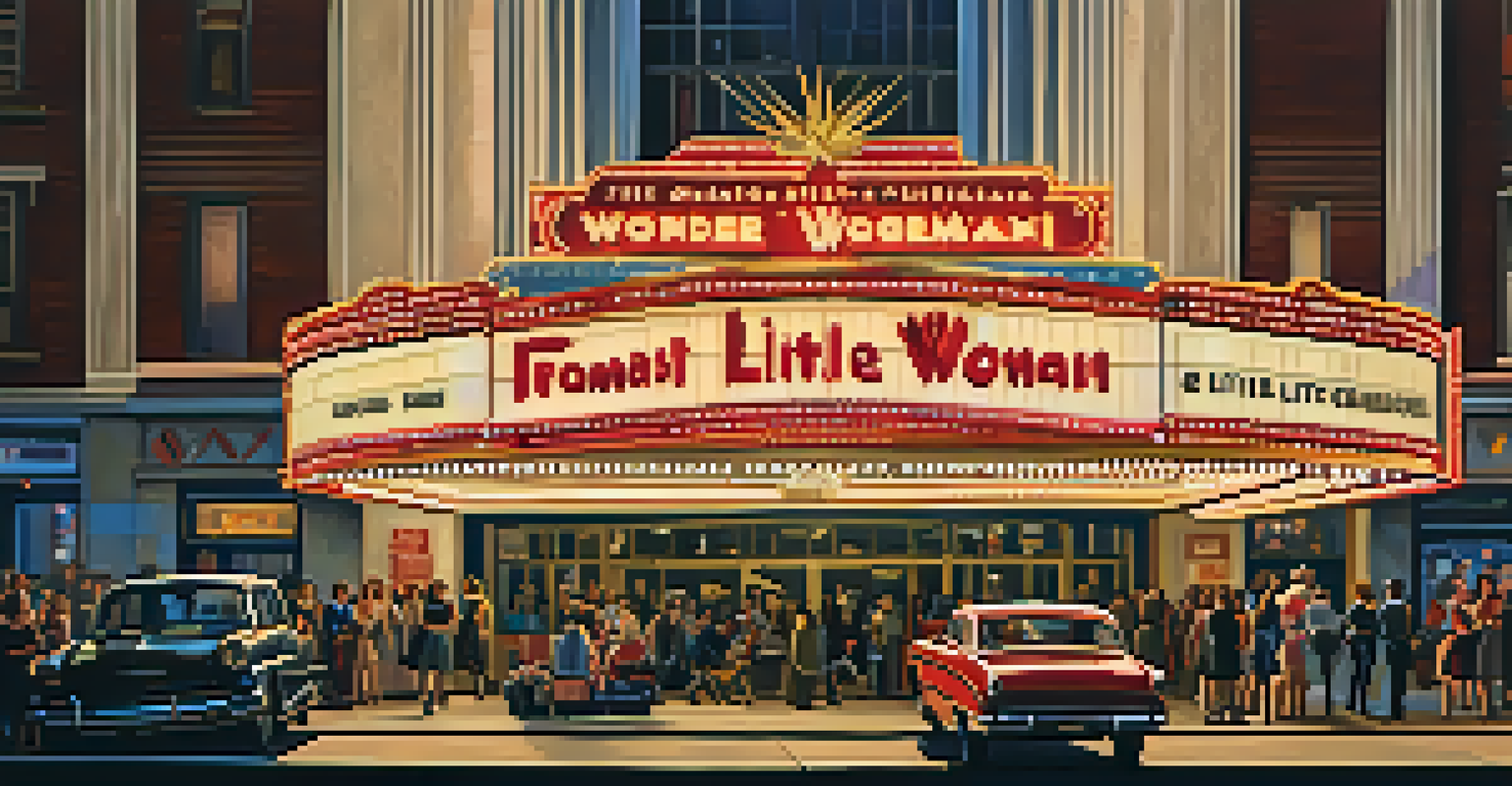Women in Hollywood: Breaking Barriers and Leading the Charge

A Historical Overview of Women in Film
The journey of women in Hollywood has been a long and challenging one. From early pioneers like Mary Pickford to the groundbreaking work of directors like Dorothy Arzner in the 1920s, women have consistently fought for a place in the industry. Despite their contributions, they have often been overshadowed by their male counterparts, leading to a persistent struggle for recognition.
I think the best way to create change is to be the change you want to see in the world.
As we moved into the late 20th and early 21st centuries, the landscape began to change. The rise of feminist movements and advocacy for gender equality helped spotlight the achievements of women in film. This shift has led to a more inclusive perspective, encouraging women to step into roles both in front of and behind the camera.
Today, we see a new generation of women leading the charge in Hollywood, reshaping narratives and breaking stereotypes. Their stories are not just about representation; they are about the power of diverse voices in storytelling. This historical journey sets the foundation for the current landscape, where women are increasingly claiming their space.
Trailblazing Women Directors and Producers
When it comes to directing and producing, women like Ava DuVernay and Greta Gerwig are making waves and setting new standards. They’re not just creating films; they’re redefining what it means to be a filmmaker in Hollywood. Their success stories inspire countless aspiring female directors who once felt that the industry was out of reach.

These women have not only achieved critical acclaim but have also brought essential stories to the forefront. For example, DuVernay’s film 'Selma' highlights a pivotal moment in American history, while Gerwig’s 'Little Women' offers a fresh take on a classic tale. Their ability to blend artistic vision with strong narratives resonates with audiences, proving that women’s stories are both compelling and commercially viable.
Women Pioneering Hollywood's Future
More women are taking on creative and executive roles, transforming the industry and paving the way for future generations.
Moreover, the increased visibility of women in leadership roles is beginning to shift industry standards. As more women take on these positions, they pave the way for future generations to follow in their footsteps. This shift is crucial for ensuring that diverse perspectives continue to influence Hollywood.
The Rise of Female-Led Films
In recent years, female-led films have gained significant attention and acclaim, with titles like 'Wonder Woman' and 'Captain Marvel' leading the charge. These films not only showcase strong female protagonists but also challenge traditional gender roles in action and adventure genres. They have proven that stories centered around women can draw massive audiences and generate box office success.
It's not just about being a woman; it's about being a good storyteller.
This trend reflects a broader cultural shift towards inclusivity and representation. Audiences are hungry for diverse stories that reflect their realities, and studios are starting to listen. As a result, we’re witnessing an increase in projects that feature complex female characters, offering viewers a richer cinematic experience.
The success of these films is encouraging more studios to invest in female-driven narratives. It demonstrates that when women are given the opportunity to lead, they can deliver box office hits that resonate with audiences globally. This newfound focus on female-led films signifies a promising future for women in Hollywood.
Women as Influential Industry Executives
Women are not just making waves in front of the camera; they are also rising to influential positions within major studios. Executives like Jennifer Salke at Amazon Studios and Donna Langley at Universal Pictures are steering the ship towards more inclusive content. Their leadership styles emphasize collaboration and innovation, fostering an environment where diverse voices can thrive.
These women are reshaping the strategies and priorities of their studios, championing projects that highlight underrepresented communities. By prioritizing diverse stories, they are not only enhancing the quality of content but also reflecting the diversity of audiences. This change is pivotal in an industry that has been historically dominated by a narrow perspective.
Rise of Female-Led Films
Female-led films like 'Wonder Woman' and 'Captain Marvel' are challenging traditional gender roles while achieving commercial success.
As more women ascend to these powerful roles, they bring with them a commitment to change. Their influence is crucial for ensuring that the future of Hollywood is inclusive and representative of the society we live in. This shift in leadership is a testament to the growing recognition of women’s capabilities in shaping the future of the industry.
The Importance of Female Representation
Female representation in Hollywood extends beyond just the screen; it influences societal norms and perceptions. When audiences see women in diverse and powerful roles, it challenges stereotypes and fosters a sense of empowerment. This representation is vital not only for women but for everyone, as it promotes a more balanced view of the world.
Moreover, studies have shown that films with female leads or directors tend to perform better at the box office. This success demonstrates that audiences are eager for stories that reflect a range of experiences and perspectives. As more women share their stories, they create pathways for dialogue and understanding, which is essential for societal growth.
By prioritizing female representation, Hollywood is taking steps towards equality and inclusivity. It sends a strong message that women’s voices matter and deserve to be heard. This commitment to representation is not just a trend; it’s a necessary evolution in the industry.
Challenges Still Facing Women in Hollywood
Despite the progress made, women in Hollywood still face numerous challenges. Issues such as pay disparity, limited access to funding, and the prevalence of sexism remain significant hurdles. For instance, women directors often receive less funding for their projects compared to their male counterparts, which can stifle creativity and innovation.
Additionally, the pressure to conform to traditional gender roles can limit the types of stories women are allowed to tell. Many female filmmakers feel compelled to prove themselves in a male-dominated landscape, which can lead to burnout and frustration. This imbalance not only affects individual careers but also impacts the diversity of stories told in Hollywood.
Challenges Persist for Women
Despite progress, women in Hollywood still face challenges such as pay disparity and limited access to funding, highlighting the need for continued advocacy.
Addressing these challenges requires a collective effort from industry leaders, audiences, and advocates. By calling attention to these issues, we can work towards creating a more equitable environment for women in film. The ongoing fight for gender equality in Hollywood is essential for ensuring that all voices are heard and valued.
The Future of Women in Hollywood
The future looks promising for women in Hollywood, as the momentum for change continues to build. With more women taking on creative and executive roles, the industry is slowly but surely transforming. Initiatives aimed at supporting female filmmakers and fostering diversity are becoming more prevalent, creating a supportive network for aspiring talents.
Moreover, audiences are increasingly demanding content that reflects a variety of experiences. As companies recognize the importance of diverse storytelling, we can expect to see more films and series that challenge conventional narratives. This shift not only benefits women but also enriches the entire cinematic landscape, making it more reflective of our society.

As we look ahead, the hope is that women will continue to break barriers and lead the charge in Hollywood. Their voices are crucial for shaping an industry that values diversity, creativity, and authenticity. Together, we can envision a future where women are not just participants but leaders and innovators in the world of film.